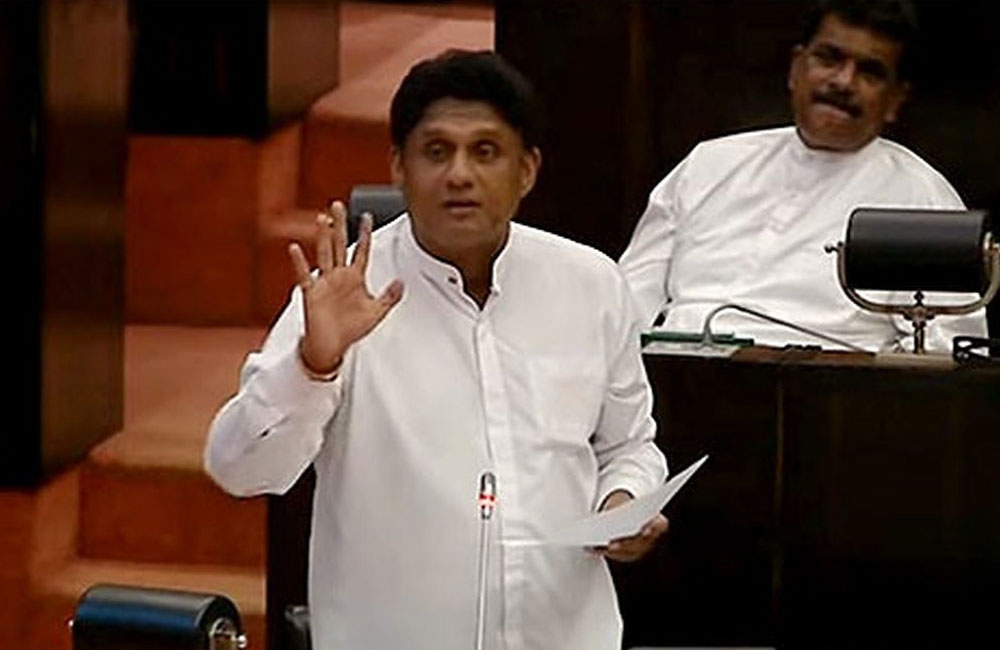Opposition Leader Questions Government’s Decision to Remove SVAT Despite Export-Friendly Policy
The Opposition Leader stated that if the government is genuinely pursuing an export-friendly policy, it is questionable why, from October 1, the SVAT system (Simplified Value-Added Tax) is being abolished under IMF directives.
He expressed these views yesterday (25) during the parliamentary debate on the export sector.
Concerns for SMEs and Cash Flow Issues “The government must consider not only the overall economy but also the micro-economy—individuals, households, entrepreneurs, and small businesses. Even today, small-scale economic actors are under pressure. If the government truly supports export-oriented policies, why abolish the SVAT from October 1 under IMF conditions?
If a new agreement had been reached with the IMF, as promised during the elections, the SVAT could have been retained as an export incentive. Through SVAT, exporters are relieved of cash flow issues since VAT is suspended on value added within the registered supply chain. This creates a favorable environment for export growth.
Instead of paying VAT to suppliers, exporters issue an SVAT invoice. If exporters are valued, why remove this under IMF conditions? The harmful effect will be the creation of serious cash flow problems for exporters. Moreover, delays will occur, efficiency will decline, administrative costs will rise, and while competitor countries move swiftly, Sri Lanka will be left at a disadvantage. Small and medium-scale enterprises will also face capital constraints,” he stressed.
Economic Growth Targets and IMF Conditions He further highlighted that while surpassing economic growth targets for two consecutive quarters is commendable, the IMF’s June 2024 conditions on VAT compliance and revenue collection are tied to the USD 2.9 billion Extended Fund Facility. As a result, exporters are facing heavy burdens.
He urged the government to renegotiate with the IMF at the final stage and request that the abolition of SVAT be postponed until digitalization is complete.
He reminded that during the recent financial collapse, 260,000 entrepreneurs were adversely affected, and stressed that Sri Lanka should not continue to simply “dance to the tune” of the IMF. He emphasized that despite the government presenting optimistic data, he would not engage in petty politics. However, he questioned whether the country is prepared to repay USD 5.5 billion annually from 2028 onwards. He added that if the previous IMF agreement had been renegotiated, debt repayments could have been extended until 2033.
Need for a Clear Program to End Poverty The Opposition Leader also pointed out that nearly 50% of institutions in the country suffer from various forms of poverty—consumption poverty, income poverty, production poverty, and investment poverty.
He acknowledged that the President’s recent remarks at the UN General Assembly regarding poverty were welcome, but insisted that mere statements would not end poverty. “The current approach only targets consumption. There is no focus on exports, production, or savings. While consumption may temporarily provide relief, what the country needs is a clear and practical program to eradicate poverty,” he concluded.

Leave your comments
Login to post a comment
Post comment as a guest